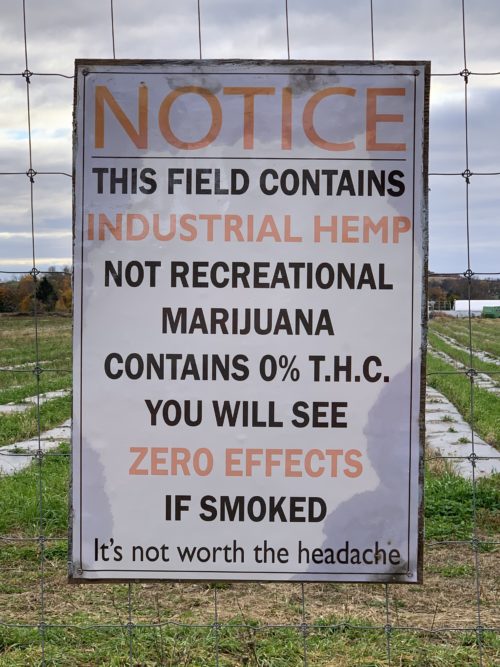
Last week FDA and FTC jointly issued a warning letter to a seller of CBD products in Florida – the seventh such warning letter of the year. The letter took issue with the manufactuer’s marketing practices related to multiple products containing cannabidiol (CBD). Specifically, the warning letter was concerned with promotional language in addressing specific medical conditions, including teething and ear ache pain in infants, autism, ADHD, Parkinson’s and Alzheimer’s.
At the same time, depending on where you live, you may find you can walk into general stores, bodegas, cafes, fancy dog food stores and many other commercial venues to discover CBD in multiple products. This includes creams, gummies, candies, dog treats and in a huge assortment of teas (both ready-made and bags), to name a few. The stance taken by regulatory agencies against marketing of CBD products juxtaposed with our real-world, every-day experience of seeing CBD products for sale quite likely (and logically) leads to confusion about what exactly the status of CBD is. In addition, there was the high profile “Farm Bill” that got everyone’s attention that was supposed to change things – didn’t it? Where are we and where aren’t we when it comes to CBD?
Fortunately, there were extremely cogent and organized remarks delivered by the Principal Associate Commissioner for Policy from FDA’s Office of Policy at the National Industrial Hemp Council 2019 Hemp Business Summit held in August. They were extremely illuminating and lay things out pretty clearly. Here is a my take of what he said and here are the remarks to read for yourself if you like.
- The Farm Bill (the Agriculture Improvement Act of 2018) made growing hemp legal. But marketing is a different issue. All cannabis products were Schedule I under the Drug Enforcement Agency system of classifying controlled substances – the most restrictive category. The Farm Bill removed hemp as an illegal controlled substance for federal purposes (when containing extremely low levels of THC – less than .3 percent). But it is FDA’s position as laid out by then FDA Commissioner Gottlieb in a statement on the issue, that the Farm Bill preserves FDA’s role in overseeing products containing CBD, whether from hemp or marijuana.
- CBD is in a prescription medicine. CBD is the active ingredient in an FDA-approved medication for epilepsy. FDA does not sanction the sale of prescription medicines as an ingredient in consumer goods. Of particular concern to FDA is the fact that while CBD has a benefit for the indication for which it has been approved in a medicine, the agency believes there is an uninformed long-term safety profile for its use outside of that medicine. Moreover, any claim associated with the use would be perceived by the agency as marketing a product that contains a medicine for uses other than for which it has been approved. As stated in the remarks “…if a product is marketed with a claim that it will diagnose, cure, mitigate, treat, or prevent a disease, then it generally will meet the definition of a drug, and it will be subject to FDA’s drug authorities.”
- What if a product containing CBD does not make a claim? If the product is an area still regulated by FDA, it may be subject to agency authorities – this includes pet medications, cosmetics, foods and dietary supplements. And all of these are regulated differently. In particular, food additives must be determined by FDA to be safe. There are exceptions, but they are limited and FDA does not regard CBD as fitting into the reasoning behind the exceptions. And when it comes to supplements, any supplement that contains a substance that is approved as a drug, is not by definition a supplement. “This means that under current law, it’s unlawful to sell a food or dietary supplement with CBD in interstate commerce.”
- So where does that leave us? Exceptions can be made by the agency. But FDA is a data-driven agency and any exceptions would likely have to have a foundation of data. Questions need resolution. “For example, how much CBD is safe to consume in a day?” What if someone ingests CBD from several sources/products at once? There are a host of questions the agency has with respect to exposure – related to both benefits and risks. The agency has put into place an internal policy working group to examine and evaluate CBD-related questions and the matter of CBD was included in a public hearing on cannabis the agency held in May. The docket receiving public comment has gotten nearly 4,500 comments which the agency is assessing. The agency may decide it needs additional authorities from Congress, which will certainly take time. They are looking for additional data.
In the meantime, the market moves on. The CBD horse has not only left the barn, it has crossed county and state lines and is galloping far and wide. While FDA seeks more data upon which to make decisions, the market itself is providing the laboratory, and consumers are making their own decisions. People all over are consuming a wide-range of CBD-related products in all sorts of quantities with variable quality and for a multitude of reasons. The answers to FDA’s questions are out there certainly. To help with keeping tabs on CBD, FDA has created a page that embodies all things FDA and CBD and it can be found here.

